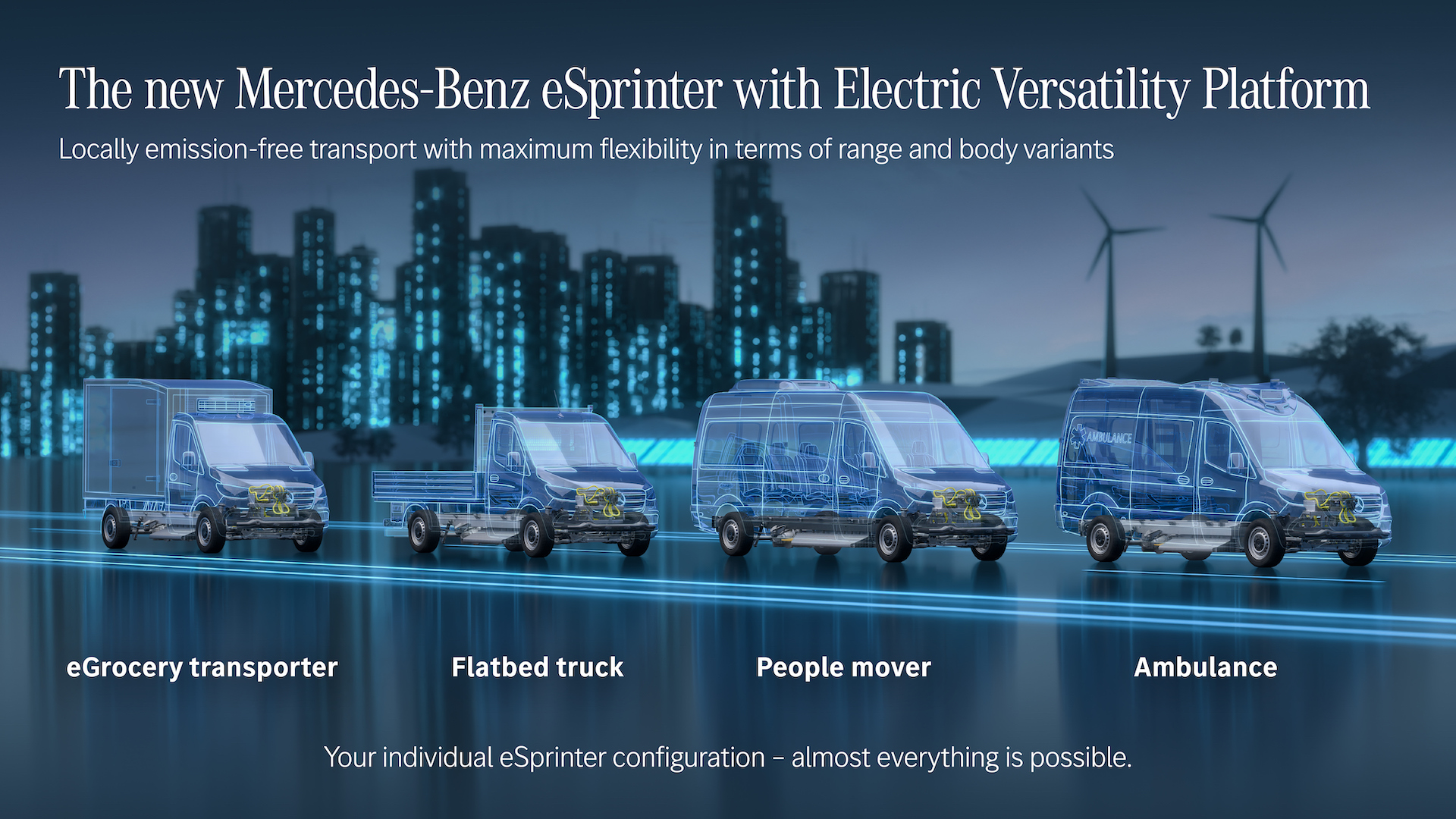

Over the coming decade, the market for light-duty commercial electric vehicles in the United States is expected to grow more than elevenfold to over 600,000 sales each year, according to Automotive News. Ford has been quick to get its foot in this door with the E-Transit, and General Motors with its reported “BV1” electric van, both of which are scheduled to launch by the end of 2021. Mercedes-Benz wants a piece of the pie too with its newly-announced eSprinter, but according to the outlet, Merc will be slow on the draw, and won’t sell the eSprinter Stateside until the third quarter of 2023.
When the eSprinter does arrive, it will compete with the American early birds by offering a broad variety of body styles and chassis configurations. Its Electric Versatility Platform (EVP) is a tri-modular architecture that bridges a standard front end containing the high-voltage components to the powered rear via a middle segment available in six configurations. These will consist of three battery capacity options, of 60, 80, and 120 kilowatt-hours according to AN, and two wheelbase lengths.




Not only will EVP be simpler and cheaper to produce for Mercedes, it will be able to pass on gains of higher max payloads to customers, who will be able to order the eSprinter in a wide range of body styles. As examples, Mercedes provided concept renders for bodies ranging from ambulances to flatbed trucks, box trucks, and passenger vans.
Ford’s offering will be available in a similarly broad range of configurations, and will be based on an adapted version of the current Transit’s architecture; a truck-style body-on-frame design. Though little is known of the GM van’s technical specification, it is expected to utilize the company’s unibody EV architecture, Ultium, which may give it the edge on potential range but reduced ruggedness.
While none of these vans will likely mean the difference between sink and swim for the companies that make them, all will prove important sales staples in a decade when vehicle sales are expected to embark on a permanent decline. Peak car may already be past us, and with it, peak van.
Got a tip? Send us a note: tips@thedrive.com